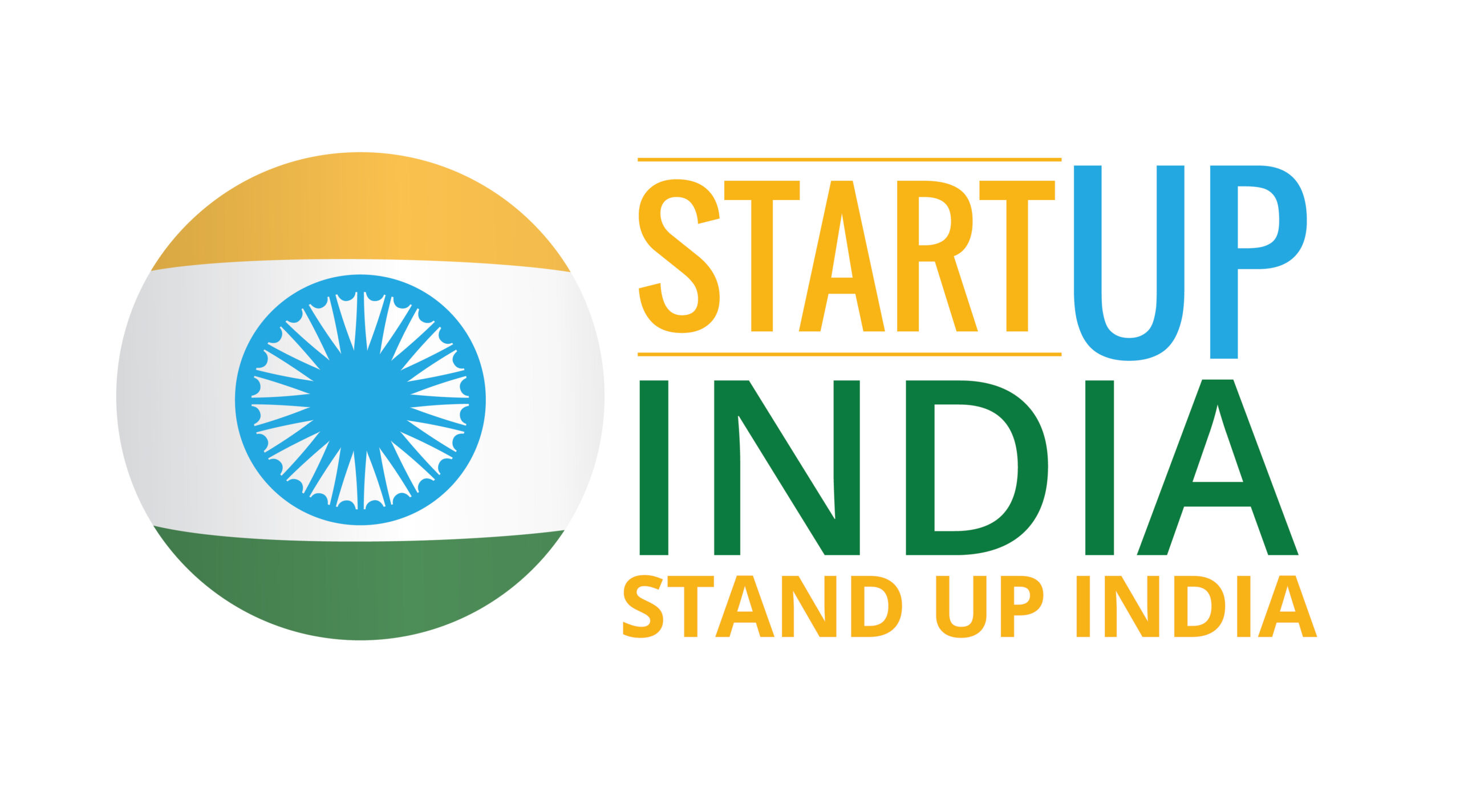Looking for Startup India Registration online and confused about what to do? Welcome to the world of entrepreneurship and innovation, where dreams take shape and possibilities know no bounds. In recent years, the Indian startup ecosystem has witnessed an unprecedented surge, fostering a culture of creativity and ambition.
To empower aspiring entrepreneurs and facilitate their journey towards success, the Indian government launched the “Startup India” initiative, aimed at providing crucial support and incentives to startups across the nation. In this article, we delve into the intricacies of “Startup India Registration Online” – its eligibility criteria, the step-by-step procedure for registration, and the myriad of benefits that await those daring enough to embark on this transformative path.
So, if you’re ready to turn your groundbreaking ideas into reality and be a part of India’s thriving startup landscape, read on about the Startup India registration to unlock the gateway to endless possibilities.
What is Startup India?
Startup India is an initiative launched by the Government of India in January 2016 with the aim of promoting entrepreneurship and supporting the growth of startup companies in the country. You can follow the steps given below of Startup India registration.
The program is designed to create a conducive environment for startups to flourish, foster innovation, and generate employment opportunities. It focuses on easing the regulatory burden, providing access to funding, and offering various incentives to foster innovation and growth in the startup ecosystem.
Procedure for Startup India Registration Online

Here is a step-by-step guide of procedure for startup Indian registration online:
Step 1: Eligibility Check
Before you start the Startup India registration process, make sure your startup meets the eligibility criteria defined by the Startup India program. The eligibility criteria include the type of entity (private limited company, partnership firm, limited liability partnership, or sole proprietorship), the age of the startup (less than ten years from the date of incorporation), and the annual turnover (should not exceed INR 100 crores in any of the previous financial years).
Additionally, your startup should be working on an innovative product, service, or process, with the potential to generate employment and create wealth.
Step 2: Create an Account
Visit the official Startup India website (www.startupindia.gov.in) and click on the “Register” or “Login” button to create a new account if you do not have one already. You will be required to provide a valid email address and mobile number for account creation. Once you complete the registration, a verification link or code will be sent to your email and mobile to verify your account.
Step 3: Fill in the Application Form
After logging in, you will be directed to the Startup India registration form. Provide all the necessary information about your startup. This includes the name of the startup, its registered address, date of incorporation, business activity, and details of the directors/partners/proprietor.
Additionally, you will need to provide the PAN (Permanent Account Number) and TAN (Tax Deduction and Collection Account Number) of the startup.
Step 4: Upload Required Documents
Along with the application form, you will need to upload certain documents to support your registration. The essential documents include the Certificate of Incorporation (for companies and LLPs), Partnership Deed (for partnership firms), or Registration Certificate (for sole proprietorships).
You will also need to upload a brief write-up about your innovative product, service, or process, explaining how it is different from existing offerings in the market.
Step 5: Self-Certification
As part of the application process, you will need to self-certify that your startup meets the eligibility criteria prescribed by the DPIIT (Department for Promotion of Industry and Internal Trade). This self-certification involves confirming that your startup is working towards innovation, job creation, and wealth generation.
Step 6: Declaration
Before submitting the application, you will be required to make a declaration stating that all the information provided in the registration form and the uploaded documents are accurate and complete to the best of your knowledge. False or misleading information could lead to the rejection of your application.
Step 7: Submission
Review all the information you have provided in the application form and the uploaded documents. If everything is accurate and in order, click on the “Submit” button to send your registration application.
Step 8: Recognition Number
Upon successful submission, you will receive an acknowledgment with a unique recognition number for your startup. This recognition number is essential for availing various benefits under the Startup India program.
Step 9: Documents Verification
After submitting your application, the authorities at DPIIT will review the details and documents provided. They may conduct further verification or request additional information if needed. This step is crucial to ensure that only eligible startups receive recognition.
Step 10: Approval
If your startup meets all the eligibility criteria and the provided information is satisfactory, you will receive the approval for Startup India recognition. This recognition is typically provided within a few days or weeks of application submission.
Step 11: Avail Benefits
Once your startup is recognized under the Startup India program, you can avail various benefits offered by the government. These benefits include tax exemptions, access to government schemes, funding opportunities, fast-tracked patent examination, and more. Keep in mind that the specific benefits available to your startup may depend on various factors and government policies.
Eligibility for Startup India Registration

To be eligible for Startup India registration, an entity must meet specific criteria as outlined below:
- Age of the Applicant: Any Indian citizen aged 18 years or above can apply for the Startup India scheme.
- Age of the Firm: The company’s date of incorporation should not exceed ten years from the time of application.
- Type of Company: The entity should have been incorporated as a Partnership Firm, Private Limited Company, or a Limited Liability Partnership (LLP).
- Annual Turnover: The company’s annual turnover should not exceed Rs. 100 crores in any financial year since its incorporation.
- Original Entity: The entity must have been formed initially by the promoters and not as a result of splitting up or reconstructing an existing business.
- Innovative & Scalable: The startup should have a well-defined plan for developing or enhancing a product, process, or service. It should also possess a scalable business model with a high potential for generating wealth and employment.
Registration and Approvals
For Startup India registration and approvals, startups need to obtain approval from the Department for Promotion of Industry and Internal Trade (DPIIT) based on the following criteria:
- Recommendation from an Incubator: The startup must obtain a recommendation from an incubator affiliated with any post-graduate college or one recognized by the Central Government.
- Patent Filing: Startups can also seek approval by having a patent filed and published in the Journals of the Indian Patent Office in the specific area of the product or service.
- SEBI Registration: Startups that offer funding and equity services must registered with SEBI.
- Government Funding Letter: Alternatively, startups can provide a funding letter from either the state or central government that promotes innovation.
Special Provisions for Partnership Startups
For partnership startups for Startup India registration, the following conditions apply:
- Ownership: At least 51% of the shares should owned by women or individuals belonging to the Scheduled Caste and Scheduled Tribe categories.
- Credit History: The partnership startup’s members should not have any defaults on credit payments.
These criteria and provisions form the basis for qualifying and enjoying the benefits offered by the Startup India initiative for Startup India registration.
Startup India Scheme Benefits

The Startup India Scheme is an initiative launch by the Government of India. To promote and support startups in the country. It introduced in January 2016 with the objective of fostering entrepreneurship, job creation, and economic growth. Here are some of the key benefits of the Startup India Scheme:
- Ease of Starting a Business: The scheme aims to simplify the process of starting a new business. By reducing the bureaucratic hurdles and paperwork. It provides a single-point registration system for startups. Making it easier and faster for entrepreneurs to get their businesses up and running.
- Access to Funding: Startups often face challenges in securing funding during their initial stages. Startup India Scheme encourages the creation of a dedicated fund of funds. Which helps in providing financial support to startups by investing in SEBI-registered venture funds.
- Tax Benefits: The scheme offers several tax benefits to eligible startups. These benefits include a tax holiday for three consecutive years. Out of their first ten years since incorporation, provided they meet certain criteria.
- Self-Certification Compliance: To reduce the regulatory burden on startups, the government allows them to self-certify compliance. With certain labor and environmental laws. This helps in promoting a business-friendly environment and enables startups to focus more on their core activities.
- Intellectual Property Rights (IPR) Protection: Intellectual Property Rights are crucial for startups. As they often rely on unique ideas and innovations. The scheme facilitates fast-tracking and reduced fees for patent. And trademark registrations, making it easier for startups to protect their intellectual property.
- Networking and Collaboration: Startup India provides a platform for startups to connect with other entrepreneurs, industry experts, investors, and mentors. Through various networking events, summits, and workshops. This fosters collaboration, knowledge sharing, and access to valuable guidance.
- Government Procurement: Startups given preference in certain government procurement processes. Which opens up opportunities for them to secure contracts and work with public sector organizations.
- Incubation and Acceleration Support: The scheme supports the creation of incubators and accelerators to nurture and mentor startups. These incubators provide various facilities, resources, and guidance to help startups grow and scale their businesses.
- International Exposure and Soft-Landing Program: The Startup India Hub assists startups in connecting with global markets, potential partners, and investors. The scheme also offers a Soft-Landing Program to help startups expand their business internationally.
- Skill Development: The scheme encourages skill development and learning through various programs and initiatives. It helps startups access skilled talent and also provides resources for entrepreneurs to enhance their own skills.
- Recognition and Visibility: Selected startups get national and international recognition through various Startup India events, forums, and platforms. This increased visibility can attract more customers, investors, and business opportunities.
- Innovation and Research Support: Startups working on innovative projects can get support through various government initiatives. That promote research and development in key sectors.
Overall, the Startup India Scheme aims to create a conducive ecosystem for startups to thrive. Fostering innovation, job creation, and economic growth in India. It has played a significant role in encouraging entrepreneurship and supporting early-stage ventures in the country.
Conclusion
In conclusion, the Startup India Registration Online initiative has proven to be a driving force behind India’s entrepreneurial revolution. Fostering a culture of innovation, job creation, and economic growth. The Startup India registration procedure has been simplified and made accessible through a user-friendly online platform. Reducing bureaucratic hurdles and promoting a conducive environment for startup growth.
This streamlined process enables startups to focus on their core business operations. Confident in the knowledge that they have the backing of the government. As the program continues to evolve and adapt. It holds the potential to transform India into a global hub for startups. Revolutionizing industries and positively impacting the lives of millions.
Aspiring entrepreneurs should seize this opportunity and embark on their entrepreneurial journey. Knowing that Startup India registration is there to support and nurture their dreams.

2 Comments